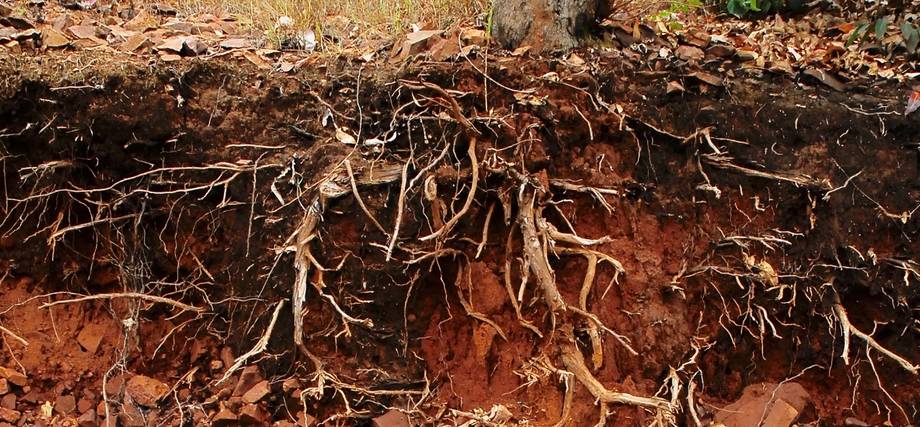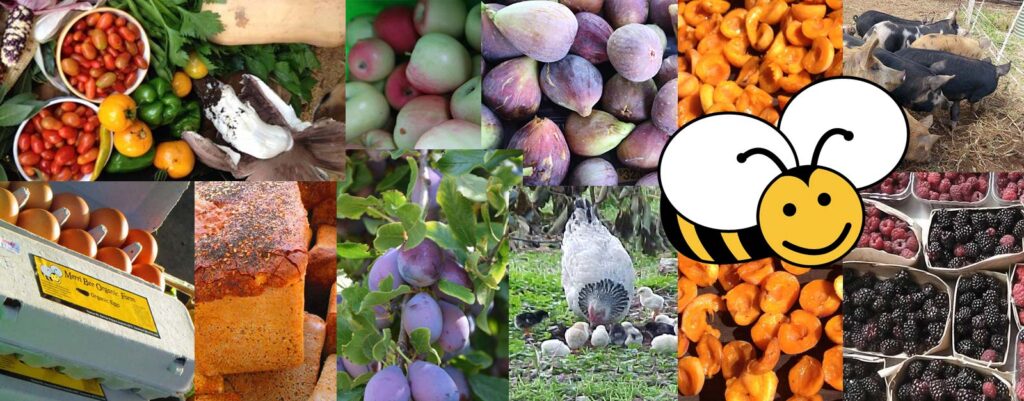Why we can’t let soils be messed up, it’s essential for life on Earth!

Soil is the foundation of life - it supports plant growth and provides a home for micro-organisms.
Healthy soil is the foundation of life. Period. This blog should stop here. That should be enough to ensure we protect and heal soils, but let me share a few of my thoughts on why soil matters!
Soil is the earth’s skin that covers the planet and supports all life on Earth. Soil is teeming with billions of organisms that provide innumerable ecosystem services. Healthy soils are vital for sustainable food production, clean water, and carbon sequestration.
Soils also support human health by filtering our water, producing our food, and providing a home for beneficial microbes that strengthen our immune system. Sadly, human activities have degraded nearly one-third of the world’s soils. To ensure a liveable planet for future generations, it is essential that we protect and restore our soils.
Thankfully, we can all do our part to protect this precious resource. Farmers can add organic matter back into the soil and help improve its health by applying a myriad of organic fertilizers such as seaweed, fish, rock phosphate, compost and compost teas and gardeners by composting kitchen scraps and yard waste. And by choosing to farm and garden organically, we can avoid using harmful chemicals that can degrade soil quality. So let’s do our part to keep the foundation of life strong!
If you don’t have access to a garden then you can make better choices with your dollars and support farmers and growers who are using regenerative and organic practices, you may think you are paying more, but think about alternatives when no food will grow…
Soil health is essential for growing healthy plants and crops.

Healthy soil is essential for growing healthy plants and crops. In fact, Healthy soil is essential for growing healthy plants and crops. Soil is a complex mixture of living organisms, minerals, water, and air. These vital ingredients work together to support plant life.
Healthy soil contains a diverse community of microorganisms that break down organic matter and release nutrients into the soil. Minerals in the soil help to regulate moisture levels and provide support for plant roots.
Healthy soil also has the right amount of porosity, or space between particles, to allow water and air to circulate. When all these ingredients are in balance, plants can thrive. However, when one or more of these elements is lacking, it can have a negative impact on plant growth.
For example, compacted soil can prevent roots from penetrating the ground and accessing vital nutrients. As a result, it’s important to take steps to maintain healthy soil if you want to grow healthy plants and crops.
There are many ways to improve soil health, including adding organic matter, mulching, and using cover crops.
The health of the soil can have a big impact on the health of the plants, so it’s important to take steps to improve soil health on farms and gardens. One way to do this is by adding organic matter, which can improve the soil’s ability to hold water and nutrients.
Mulching is another effective way to improve soil health, as it helps to protect the soil from erosion and retain moisture. Cover crops are also a great way to improve soil health, as they help to improve drainage and prevent nutrient loss.
Any farmer or gardener knows that healthy soil is essential for a thriving crop. But what many people don’t realize is that there are a number of simple ways to improve the health of your soil.
Here are just a few:
- Add organic matter. This can be anything from compost to leaves to grass clippings. Organic matter helps improve the structure of the soil, which in turn helps it retain moisture and nutrients.
- Use cover crops. Cover crops are plants that are grown to protect the soil from erosion and wind damage. They also help improve the fertility of the soil by adding nitrogen and other nutrients.
- Limit tillage. Tillage is the process of stirring up the soil, and it can have a number of negative impacts on soil health. It increases erosion, destroys earthworms and other beneficial organisms, and releases carbon dioxide into the atmosphere. So, if you’re looking to improve your soil health, try to limit tillage as much as possible.


Improving soil health can help reduce erosion, increase water retention, and improve nutrient uptake.
Just as our own health improves when we exercise and eat right, so too does the health of our soil improve when we give it the attention it needs. By improving soil health, we can reduce erosion, increase water retention, and improve nutrient uptake.
This not only benefits our gardens and farms, but also helps to combat climate change. After all, healthy soil is the foundation of a healthy planet.
When we dig the soil, we disrupt its natural structure and microbiome. This can lead to soil compaction, which in turn leads to increased runoff and erosion, improve soil structure, increase water retention, and boost nutrient levels and not to mention growing amazing nutrient-dense food.
By taking care of our soil, we are taking care of ourselves and the food we eat.
You are what you eat, and that goes for the plants you eat too. Just like humans, plants need a nutrient-rich diet to stay healthy and grow strong. This is where healthy soil comes in. By providing plants with the nutrients they need, healthy soil helps them to produce nutrient-dense food. This in turn helps us to get the nutrients we need to maintain our own health.
So next time you’re enjoying a nutrient-packed meal, take a moment to thank the soil that made it possible. Without healthy soil, we would all be quite literally malnourished. Or maybe we are already there and don’t know it?
Ray Milidoni







Another great article. In Michael Evans book simply titles, Soil, he says if all farmers and gardeners united in developing healthy soil we could reverse climate change…..how’s that for a goal!
Thanks,sounds like one of us!
In total agreement, Sally